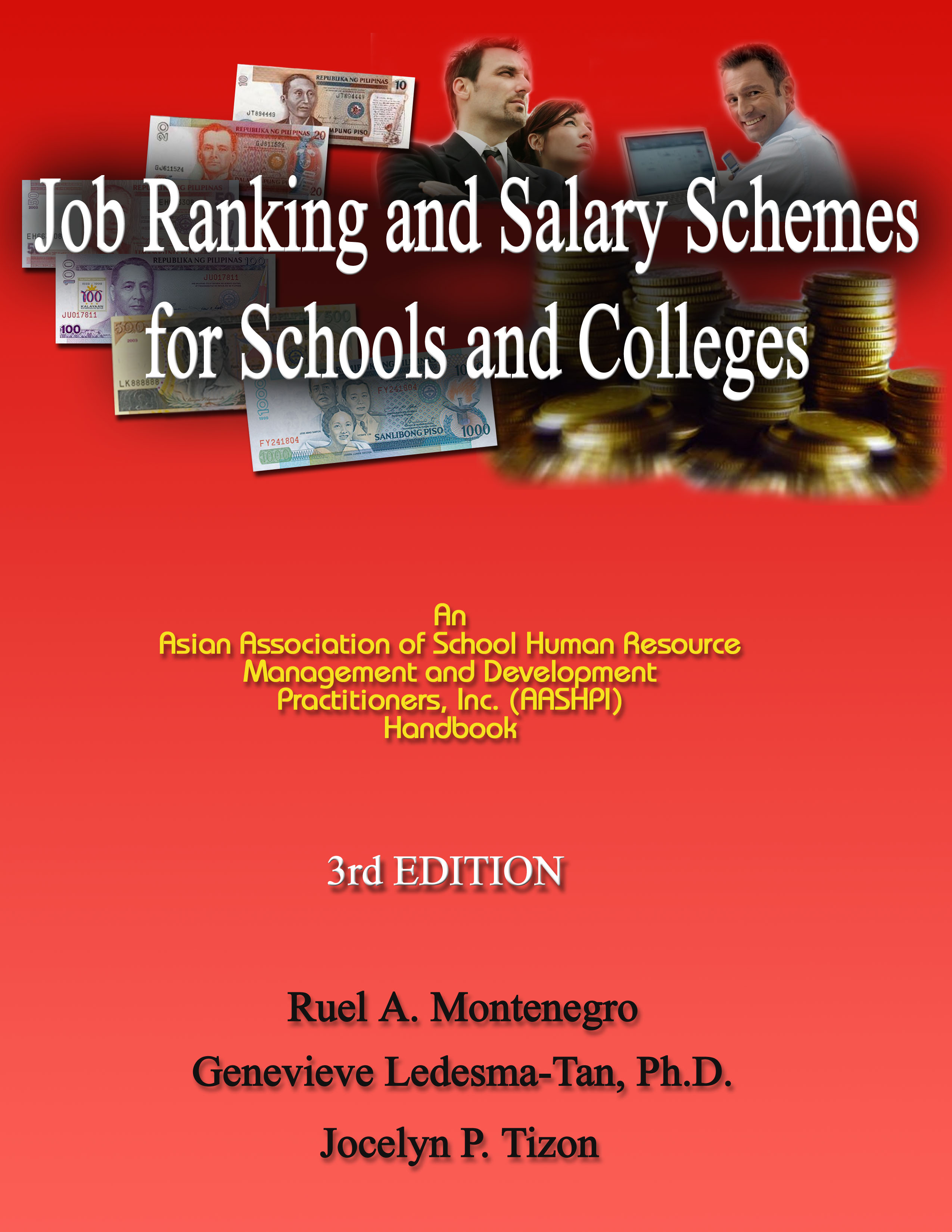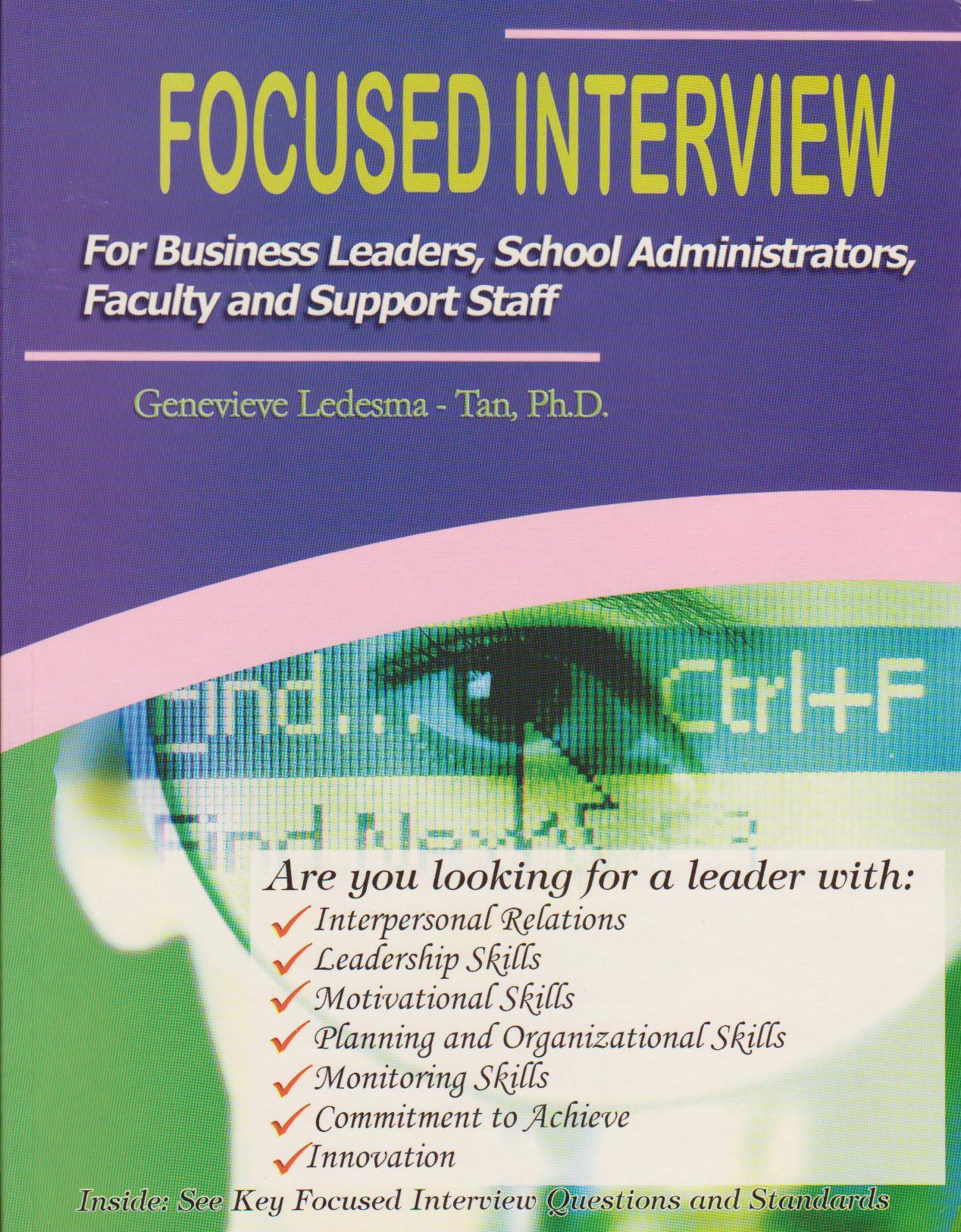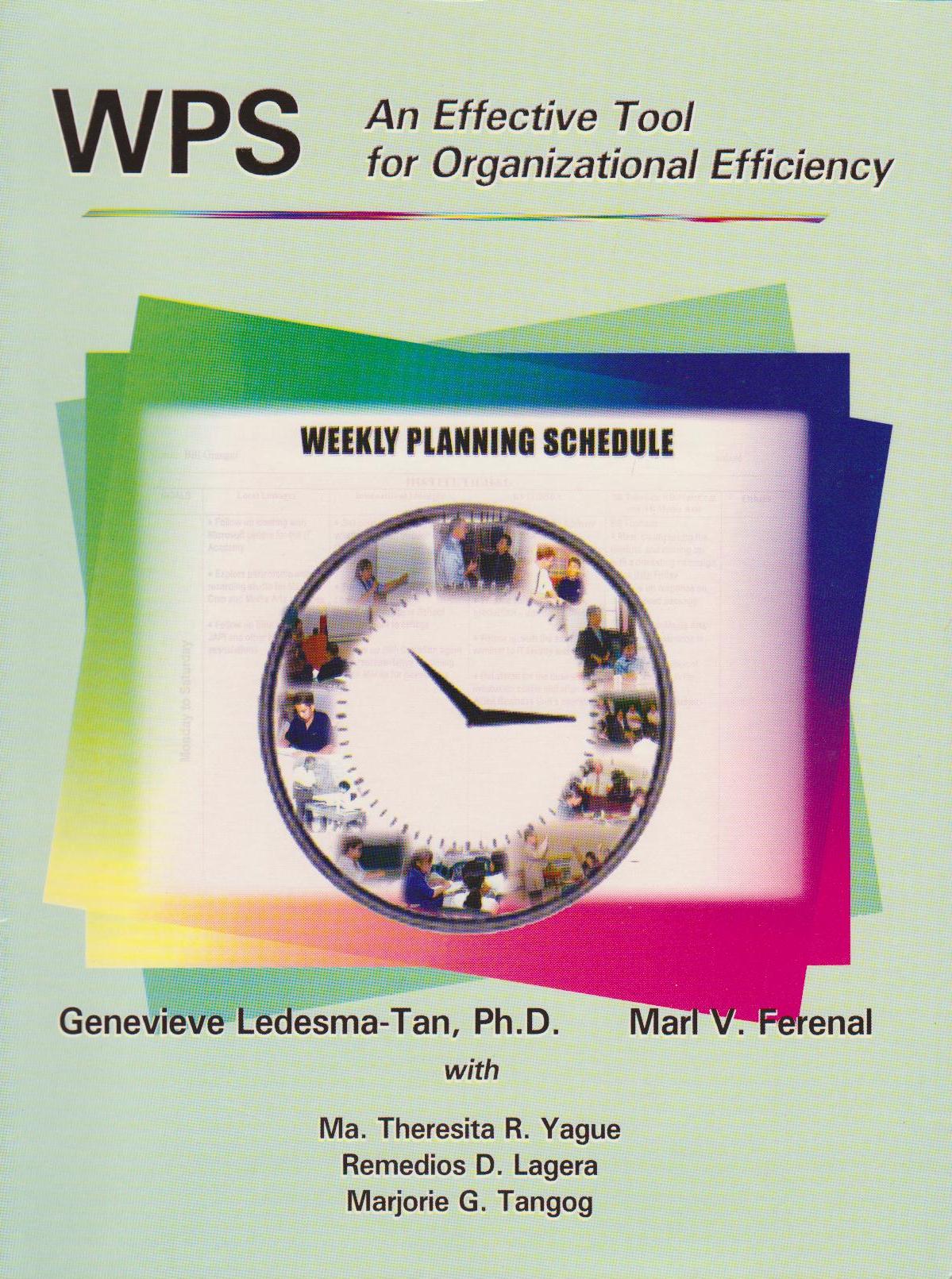
Organizations are continuously pressured to be productive and achieve quality standards due to globalization. With this manual, Key Result Areas are introduced to provide targets to aim for while Rubrics measure how far along has an organization achieved its identified Key Result Areas. Institutional culture, vision-missions, and other subjective priorities are tied-in to KRA aspects as well as to facilitate organizational relevance in competitiveness.




